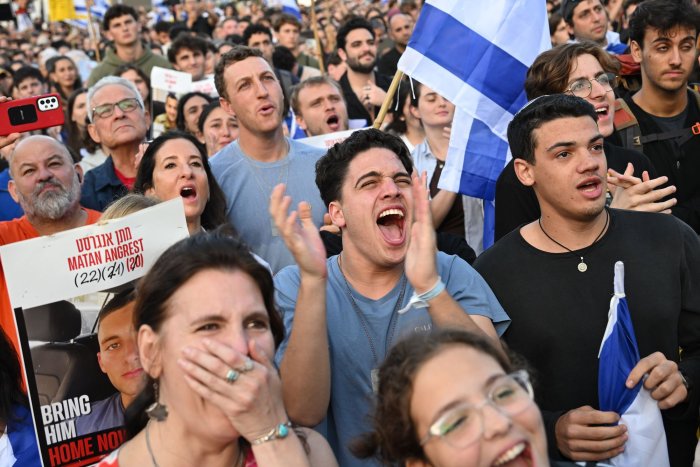Israel launches search of northern Gaza for last remaining hostage
Jan. 26 (UPI) — The Israeli military has launched an operation in northern Gaza to retrieve the body of the last remaining hostage in the Palestinian enclave.
A total of 251 people were abducted from Israel and taken into Gaza on Oct. 7, 2023, when Hamas conducted a bloody surprise attack on the Middle Eastern country.
Many of the hostages, some of whom were killed in the initial attack, were released or rescued prior to an October 2025 cease-fire between Israel and Hamas, which facilitated the repatriation of all the remaining hostages aside from the 24-year-old Ran Gvili.
Gvili, a Border Police officer, was taken on Oct. 7 from Alumim, a religious kibbutz located in southern Israel, near Gaza.
In late January 2024, Israel announced that it had determined that Gvili was killed in the attack and his body taken into Gaza.
The office of Prime Minister Benjamin Netanyahu said in a statement Sunday that the “wide-scale operation” to locate Gvili was being conducted at a cemetery in northern Gaza.
The extensive search “will utilize all the intelligence available to us,” it said.
“This effort will continue as long as necessary,” the prime minister’s office continued.
“The State of Israel is determined to return Ran Gvili, of blessed memory, for a proper Jewish burial.”
The Hostages and Missing Families Forum accused Hamas on Sunday of subjecting Gvili’s family to “psychological torture” by denying them and the country closure.
“Ran should have returned long ago,” it said in a statement.
The IDF confirmed the search, urging the public to refrain from spreading rumors and unsubstantiated reports.
“The IDF will continue to employ all necessary efforts until Sergeant First Class Ran Gvili is returned for burial in the State of Israel,” it said.
The search was launched as Israel said it aims for a limited reopening of the Rafah crossing between southern Gaza and Egypt.
Israel effectively closed the crossing, the only one that does not go through Israel, in May 2024 when Israeli soldiers took control of it in its military operation.
The Israeli government said Sunday that it will open the crossing to only pedestrians who will be subjected to “a full Israeli inspection mechanism” once Gvili’s body is returned.
The crossing opening is part of President Donald Trump‘s 20-point cease-fire plan. According to the Israeli government, its limited reopening is conditioned on the return of all living hostages and “a 100% effort by Hamas to locate and return all deceased hostages.”
